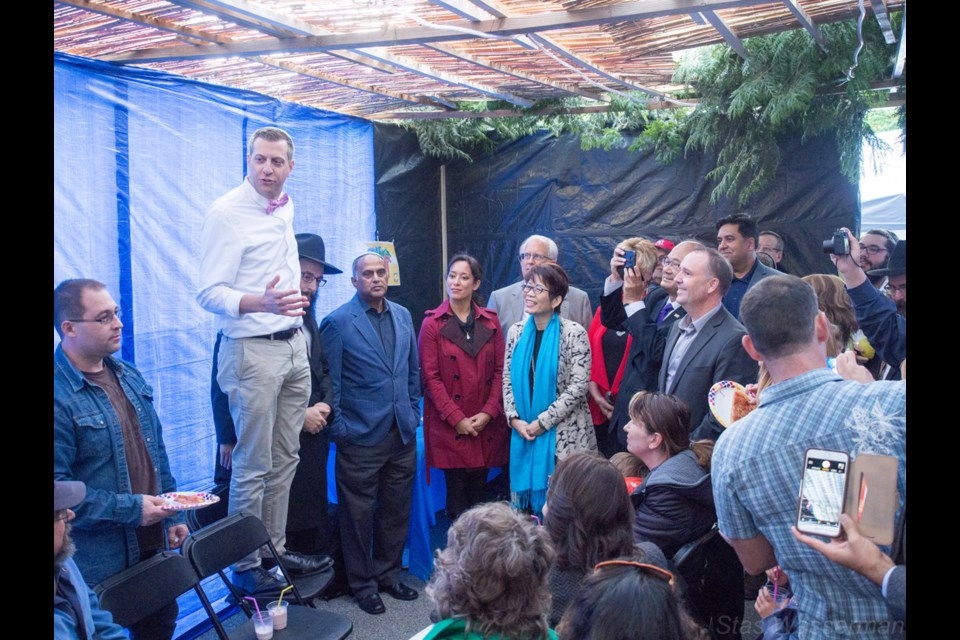The Bayit — a small orthodox synagogue in south Richmond — is doubling down.
After growing its small congregation 10-fold this past year, the group’s president Michael Sachs, with the assistance from the region’s Jewish community, has doubled the size of its place of worship, near No. 3 Road and Steveston Highway.
To help celebrate, the synagogue, in partnership with Chabad of Richmond, hosted “Shakes in the Shack Sukkot Carnival” on Oct. 8 in a sukkah hut.
A traditional sukkah is typically made of wood and bamboo and covered with palm leaves. It is a temporary shelter that signifies the time when Israelites lived in the wilderness.
At The Bayit, a modern sukkah was built using a tarp. Members gathered outside to eat and share stories.
Sukkahs are built to commemorate Sukkot, a biblical holiday that marks the remembrance of Israelites performing their famous pilgrimage, led by Moses and at the will of God, to free themselves from slavery in Egypt. The week-long holiday comes at the time of harvest and thus has an agricultural component.
This year, it happened to fall on Thanksgiving Sunday, putting Richmond in a particularly grateful mood.
The sukkah was generously donated by the Fadida and Burton families, said Sachs.
Attending the festivities were Richmond’s MLAs, Coun. Alexa Loo, Coun. Bill McNulty and Mayor Malcolm Brodie, who listened to some of the issues pertinent to Richmond’s Jewish community, said Sachs.
The Bayit holds weekly services and prayers for the orthodox community and lays claim to the only kosher Mikvah (spiritual bath) in Richmond.
Richmond has a small but vibrant Jewish community. In 2011, National Household Survey showed 2,885 Jews in the city.
In Richmond, fewer folks are speaking Hebrew in their homes, according to recent census data. In 2016, only 270 people claimed Hebrew as their mother tongue in Richmond and just 120 speak it at home. In 2006, 180 people claimed to speak Hebrew at home.
Census data on religions will be released Oct. 25.



